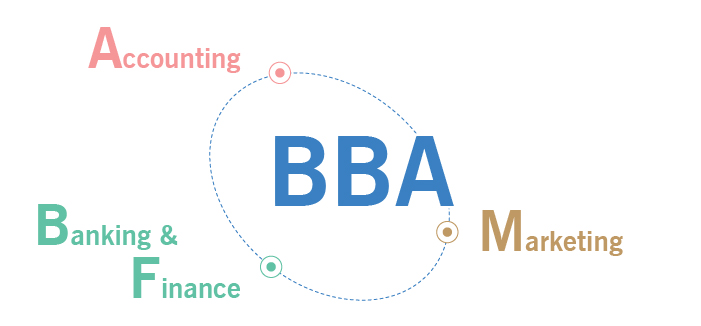A Ph.D. (Doctor of Philosophy) in Business or a related field is the highest academic degree awarded by universities, typically aimed at individuals pursuing careers in academia, research, or specialized consulting. A Ph.D. involves in-depth, original research that contributes to the development of theoretical knowledge in the field of study. Unlike professional doctorates such as the Doctor of Business Administration (DBA), which focuses on applied research, a Ph.D. emphasizes advancing academic knowledge and theoretical insights.
Key Features of a Ph.D.:
- Purpose:
- The primary purpose of a Ph.D. is to produce scholars who can contribute original research to their field of study. It focuses on developing deep, specialized knowledge and research skills to explore unexplored areas within a discipline.
- Ph.D. programs are designed for those who aim to pursue careers in academia as university professors, researchers, or consultants. They are also ideal for individuals interested in deeply analyzing and understanding business theory and methodology.
- Duration:
- A Ph.D. program typically lasts 4 to 7 years, depending on the country, university, and specific research project. Some students may take longer if they are conducting complex or interdisciplinary research.
- The length of time can also depend on whether the student is studying full-time or part-time.
- Admission Requirements:
- A Master’s degree (often an MBA or MSc) is typically required for admission, though some programs accept candidates directly after their undergraduate studies (especially in the U.S.).
- Applicants are usually required to submit research proposals outlining their proposed topic, alongside their academic transcripts, letters of recommendation, a personal statement, and sometimes standardized test scores (e.g., GRE).
- In addition to academic qualifications, applicants need a strong background in research and the ability to critically evaluate existing literature.
- Program Structure:
- A Ph.D. program usually involves two main phases: coursework and research.
Coursework Phase:
- The first phase includes a series of advanced courses aimed at developing students’ understanding of research methodologies, theories, and academic writing skills. Subjects covered in this phase may include:
- Advanced Quantitative Methods
- Qualitative Research Methods
- Business Strategy and Competitive Advantage
- Organizational Theory
- Marketing, Finance, and Economics
- Research Ethics and Publication
- Advanced Statistics for Research
- Data Analysis and Modeling Techniques
Research Phase:
- After completing coursework, students focus on their dissertation or thesis, which involves conducting original research that adds to the academic body of knowledge in their field. This phase can take several years as students work on defining their research question, collecting data, analyzing results, and writing their dissertation.
- Students work under the guidance of one or more faculty advisors or mentors. Their research is expected to be publishable in peer-reviewed academic journals.
- Research Focus:
- A Ph.D. involves producing theoretical research, which often aims to build upon or challenge existing theories, frameworks, and models within the chosen field. Common research topics might include:
- Strategic Management and Organizational Theory
- Corporate Governance and Leadership
- Marketing Theory and Consumer Behavior
- Financial Theories and Economic Models
- Entrepreneurship and Innovation
- Supply Chain and Operations Management
- International Business and Globalization
- Human Resource Management and Organizational Behavior
- Information Systems and Technology Management
- A Ph.D. involves producing theoretical research, which often aims to build upon or challenge existing theories, frameworks, and models within the chosen field. Common research topics might include:
- Subjects in a Ph.D. Program: While the specific subjects and courses offered may vary between institutions, the following are typical subjects covered in a Ph.D. in Business:
- Research Methods and Methodology:
- Focuses on research design, both qualitative and quantitative methods, statistical tools, and techniques for analyzing data.
- Topics include survey research, case study methodology, regression analysis, hypothesis testing, and experimental designs.
- Advanced Business Theory:
- Advanced courses on the foundations and evolution of business theories, including classical and contemporary theories in management, economics, and organizational behavior.
- Business Ethics and Corporate Social Responsibility (CSR):
- This subject focuses on the moral and ethical considerations in business decisions and the role of business in addressing social, environmental, and economic issues.
- Strategic Management:
- Covers frameworks and theories used to analyze, formulate, and implement strategies at the corporate, business, and functional levels.
- Organizational Behavior:
- Explores how individuals and groups behave within organizations and the impact of organizational culture, leadership, and structure on performance.
- Marketing Theory and Consumer Behavior:
- Focuses on the psychological, social, and economic factors that influence consumer behavior and how businesses can align their marketing strategies accordingly.
- Finance and Accounting Theory:
- Covers advanced theories in financial management, investment analysis, corporate finance, and accounting practices, and how they affect decision-making.
- Human Resource Management:
- Includes the study of employee motivation, compensation, leadership, talent development, and organizational design, with an emphasis on their impact on performance.
- Entrepreneurship and Innovation:
- Investigates the dynamics of entrepreneurship, startup ecosystems, venture capital, and innovation management.
- Research Methods and Methodology:
- Dissertation/Thesis:
- The dissertation is the cornerstone of the Ph.D. program. It is an extensive research project that must contribute new knowledge or offer new perspectives to the field of business.
- The dissertation can be either theoretical or empirical. A theoretical dissertation focuses on developing new theories or models, while an empirical dissertation tests existing theories through experiments, surveys, or case studies.
- Students must defend their dissertation in front of a committee of faculty members, who evaluate the research methodology, analysis, and contributions to the field.
- Career Opportunities:
- Academia: Many Ph.D. graduates pursue careers as professors or researchers in universities or business schools, teaching courses and conducting research in their area of expertise.
- Consulting: Ph.D. holders may work in consulting firms, providing expertise on complex business challenges or advising organizations on strategy, management, or operations.
- Corporate Research and Development: Ph.D. graduates often take on roles in R&D departments in large corporations, where they can use their advanced research skills to contribute to new product development, innovation, and business strategy.
- Policy and Government: Some Ph.D. graduates work for government agencies or think tanks, conducting research that influences policy decisions or provides data for national or international economic strategies.
- Skills Developed:
- Critical Thinking and Problem-Solving: Ph.D. students are trained to think analytically and develop solutions to complex, often abstract problems.
- Advanced Research Skills: Ph.D. programs teach students how to design and conduct rigorous research, including data collection, analysis, and interpretation.
- Communication Skills: Writing research papers, publishing in academic journals, and presenting findings at conferences improve both written and verbal communication abilities.
- Teaching and Mentorship: Ph.D. candidates often gain teaching experience, preparing them to become professors and educators.
- Global Recognition and Flexibility:
- A Ph.D. is a globally recognized qualification that is respected in academic, research, and policy-making circles.
- Ph.D. programs are offered in various formats, with options for full-time, part-time, and online study, making them accessible to a wide range of students.
Conclusion:
A Ph.D. in Business is an advanced academic degree designed for those seeking to deepen their expertise in a specific area of business, contribute original knowledge to the field, and pursue careers in academia or research-driven industries. It emphasizes theoretical knowledge, critical analysis, and original research, offering students the opportunity to become experts in their field. The subjects covered are broad and interdisciplinary, spanning areas such as organizational behavior, marketing, finance, strategy, and entrepreneurship. The ultimate goal is for Ph.D. candidates to contribute significantly to the development of business theory, and to apply this knowledge to real-world business problems.




